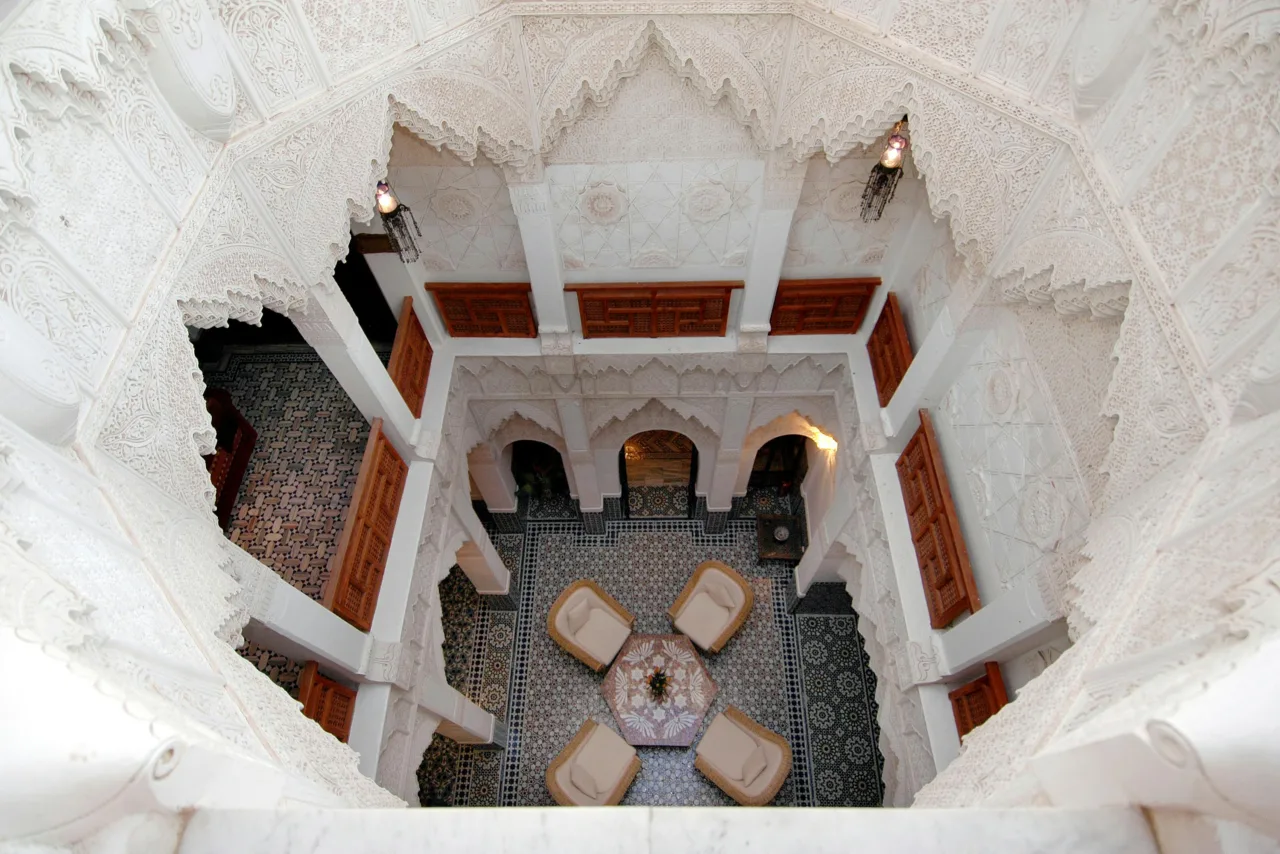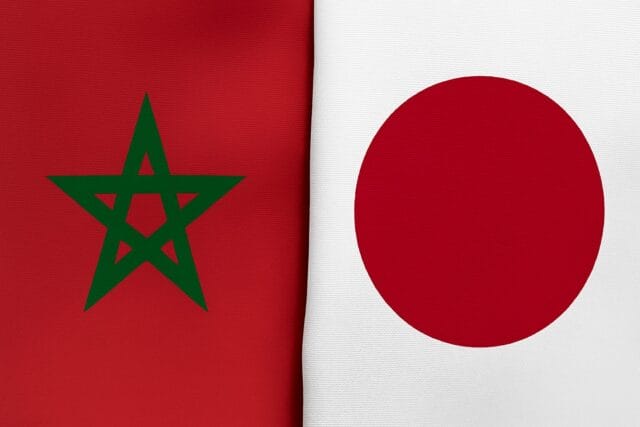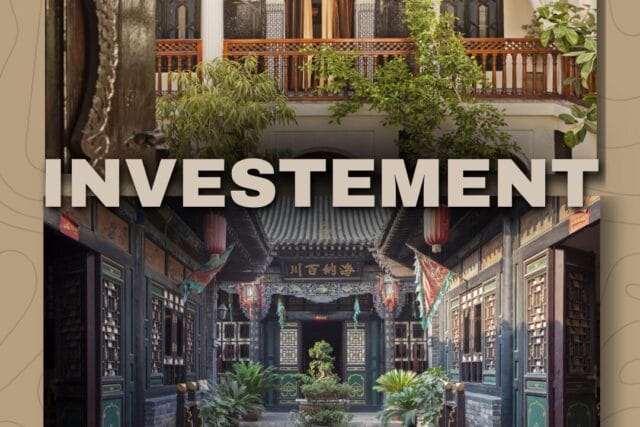
Buying Property in Marrakech: 7 Myths vs Reality Explained
For many international investors, buying property in Marrakech is a dream — the promise of sun-drenched courtyards, bustling souks, and stable rental yields. Yet misconceptions often cloud the decision-making process. From legal concerns to exaggerated price expectations, myths can make newcomers hesitant or lead them to poor choices.
This comprehensive guide separates fact from fiction, explaining what really awaits you when buying property in Marrakech in 2025. Whether you want a traditional riad, a modern villa in Hivernage, or a short-term rental near the Medina, understanding the realities will help you invest with confidence.
Myth 1: Foreigners Cannot Own Property in Marrakech
One of the most persistent myths is that non-Moroccans cannot legally own homes in the city. In reality, foreigners have long been entitled to purchase freehold residential property throughout Morocco, including Marrakech. Exceptions mainly apply to agricultural land, which may require special authorisation.
The process is straightforward if you work with a licensed agent and a notary who verifies ownership history, boundaries, and taxes. Thousands of expatriates already own villas, apartments, and riads. Our guide on buying property in Morocco as a foreigner explains the legal framework in detail.
Reality: You can absolutely acquire property, provided you respect zoning laws and register the transaction with the Land Registry. Partnering with experienced professionals will protect your interests and ensure compliance with Moroccan regulations.
Myth 2: Buying Property in Marrakech Is Complicated and Risky
Another common belief is that the process of buying property in Marrakech is filled with red tape and legal hazards. While due diligence is essential, Morocco has reformed its real estate sector over the past decade. Digital cadastral records, stricter licensing for agents, and transparent notarial procedures have simplified transactions.
Risks mostly arise from informal deals or unregistered sales. Avoid shortcuts such as paying cash without a notarised contract or buying properties with unclear titles. Choosing reputable agencies and lawyers will give you clear contracts, tax calculations, and access to mortgage facilities if required. For financing advice, see our post on real estate financing options for foreign buyers.
Reality: With professional guidance, the process is no more complicated than purchasing property in other Mediterranean markets. Timelines usually range from four to eight weeks, depending on mortgage approval and document verification.
Myth 3: Properties in Marrakech Are Overpriced
Some investors worry that Marrakech has become too expensive, particularly in trendy districts like the Medina or Palmeraie. While premium homes command high prices, there is a wide range of budgets. Small riads requiring renovation can start around €120,000, while mid-range apartments in Gueliz often cost between €150,000 and €250,000.
Luxury villas with pools in Hivernage or golf-front properties near Al Maaden are priced higher, but they still compare favourably with similar homes in Europe or Dubai. Price appreciation has been steady rather than speculative, driven by strong tourism, infrastructure investment, and an expanding expatriate community.
Reality: Marrakech offers value for money across segments, from heritage riads to contemporary family homes. Careful market research and professional valuation will help you negotiate fairly and avoid inflated offers. Our article on whether 2025 is the right time to buy provides insight into price trends.
Myth 4: Renovating a Riad Is Always a Nightmare
Restoring an old riad is often portrayed as an ordeal — endless delays, spiralling budgets, and complex permits. While renovation projects do require patience, they can also be immensely rewarding. Marrakech is home to skilled artisans specialising in zellige tiles, carved wood, and tadelakt plaster, making it possible to revive traditional homes while maintaining authenticity.
Success depends on working with architects and contractors familiar with local building codes and heritage preservation rules. Obtain written quotes, phased timelines, and clear penalties for late delivery. Many owners transform riads into boutique guesthouses or chic holiday rentals, generating substantial income.
Reality: Renovating a riad can be efficient and profitable if you assemble a trusted team and budget for contingencies. It’s an opportunity to combine personal style with historic charm, creating a unique asset in Marrakech’s competitive rental market.
Myth 5: The Market Is Only for Luxury Buyers
Because high-profile investors often purchase lavish estates, some assume that buying property in Marrakech is limited to the wealthy. In truth, the market caters to diverse budgets and strategies. Apartments in new developments or smaller suburban homes provide accessible entry points for first-time investors or retirees.
Emerging zones on the city’s outskirts — such as Targa or Agdal — offer affordable prices, good infrastructure, and proximity to shopping centres and schools. These locations are popular among young Moroccan families and long-term tenants, offering consistent rental yields.
Reality: Marrakech is not just for millionaires. From modest flats to spacious villas, you’ll find options aligned with your financial capacity and investment horizon.
Myth 6: Financing a Property in Marrakech Is Impossible for Foreigners
A widespread misconception is that banks in Morocco rarely grant loans to foreign buyers. While it’s true that mortgage requirements can be stricter for non-residents, financing is far from impossible. Several Moroccan banks, including Attijariwafa Bank, BMCE, and Banque Populaire, offer mortgage products tailored to expatriates investing in the local housing market.
Typically, lenders require a minimum down payment of 30% to 40% of the purchase price, proof of income, and property insurance. Interest rates remain competitive compared to other emerging markets, and repayment periods can stretch up to 20 years. For a smooth experience, prepare all necessary documents, such as tax returns, payslips, and identification. Consult our post on real estate financing options for foreign buyers in Morocco for more details.
Reality: Accessing a mortgage in Marrakech is achievable if you meet the eligibility criteria. Foreign buyers who plan carefully and work with bilingual brokers or bank advisors often find the process manageable and cost-effective.
Myth 7: Rental Income Potential Is Overstated
Some investors hesitate, fearing that rental demand is exaggerated. In truth, Marrakech enjoys a thriving short-term and long-term rental market. Tourism remains a significant driver, with millions of visitors flocking to the city annually for its culture, gastronomy, and vibrant nightlife. Short-term rentals — especially riads and villas near Jemaa el-Fnaa or golf resorts — achieve attractive nightly rates during peak seasons.
Long-term rentals also perform well thanks to expatriates, remote workers, and Moroccans relocating for jobs or education. Well-managed properties with reliable service and quality furnishings can deliver annual yields ranging from 5% to 8%, sometimes higher for luxury listings.
Reality: The key to unlocking rental income lies in understanding your audience, setting realistic pricing, and ensuring consistent maintenance. For guidance, see our article on short-term rental regulations.
Myth 8: Hidden Costs Make Investment Unprofitable
Many first-time buyers assume that unforeseen charges will erode profits. While purchasing property involves several fees, most are transparent if explained upfront. Common costs include notary fees (0.5% to 1% of the purchase price), registration taxes (4%), and agency commissions (typically 2.5% plus VAT). Budgeting for maintenance, insurance, and utilities is equally important.
Compared with other global real estate hubs, Marrakech’s acquisition costs are reasonable, and annual property taxes are modest. Properties used for short-term rentals must comply with local licensing rules, but these are predictable expenses rather than hidden traps.
Reality: With proper planning and professional advice, buying property in Marrakech is financially viable. Transparent quotations and clear contracts minimise risk, allowing you to focus on maximising returns.
Myth 9: Marrakech Is Only for Holiday Homes
Another myth is that Marrakech real estate serves only as a vacation retreat. While holiday homes are popular, the city is also a strategic hub for entrepreneurs, digital nomads, and retirees seeking year-round living. Its international airport, modern hospitals, bilingual schools, and excellent internet connectivity make it suitable for full-time residency or hybrid lifestyles.
Neighbourhoods like Gueliz, Hivernage, and Targa offer a mix of modern apartments and family houses, while the Medina remains an enchanting option for those wanting immersion in Moroccan culture. A growing number of professionals split their time between Europe and Marrakech, using their homes as both personal retreats and income-generating assets.
Reality: Buying property in Marrakech is about flexibility. Whether you intend to live, rent, or do both, the market supports multiple strategies for long-term success.
Myth 10: Lifestyle Challenges Outweigh the Benefits
Some potential investors worry that adapting to local customs, language, or administration will be daunting. In practice, Marrakech is a cosmopolitan city with a welcoming atmosphere. French and English are widely spoken in real estate, banking, and hospitality sectors. A rich expatriate community provides support through clubs, events, and social networks.
Moreover, the lifestyle benefits are undeniable: pleasant weather, affordable domestic help, world-class restaurants, and vibrant art scenes make living in Marrakech highly enjoyable. Regular flights to European capitals ensure that family and business connections remain accessible.
Reality: Far from being a challenge, life in Marrakech can be fulfilling and culturally enriching. Understanding etiquette, hiring trustworthy local staff, and learning a few Arabic or French phrases enhance integration and elevate the overall experience.
FAQs About Buying Property in Marrakech
Is buying property in Marrakech safe for foreigners?
Yes, buying property in Marrakech is generally safe for foreign investors. Moroccan property law allows non-residents to acquire freehold titles, and transactions are overseen by licensed notaries who verify contracts and register purchases. To minimise risk, always work with reputable real estate agents, request a full title search, and hire an independent legal advisor familiar with local regulations.
Can foreigners get a mortgage when buying property in Marrakech?
Foreigners can access mortgages from Moroccan banks, although lending criteria may differ from those for residents. Most lenders request a deposit of 30–40%, proof of income, and property insurance. Banks such as Attijariwafa and BMCE offer mortgage products tailored to expatriates. Consulting both your home bank and Moroccan institutions helps you compare rates and repayment terms before finalising your purchase.
What taxes and fees apply when buying property in Marrakech?
Expect to pay registration tax (around 4%), notary fees (0.5–1%), and agency commissions (about 2.5% plus VAT). There are also small administrative charges for title registration and legal documents. Annual property taxes are moderate, and certain exemptions may apply to new builds or primary residences. Request a written breakdown of costs from your notary or agent before signing any agreement.
Is rental income from Marrakech properties profitable?
Yes, rental income potential is strong in Marrakech, especially for riads, luxury villas, and modern apartments in prime areas. Well-managed holiday rentals can achieve annual yields of 5–8%, and premium properties in locations such as Hivernage or near golf resorts may exceed these figures during peak tourist seasons. Professional management services can help owners maintain occupancy rates and protect their investment.
Which areas of Marrakech are best for property investment?
Popular choices include the Medina for authentic riads, Gueliz for modern apartments, and Hivernage or Palmeraie for luxury villas with gardens and pools. Emerging neighbourhoods such as Targa and Agdal are also gaining traction, particularly for families and long-term rentals. Each district has unique advantages, so align your investment goals with the lifestyle or rental market you want to target.
What legal steps should I follow when purchasing property in Marrakech?
Key steps include selecting a trusted agent, securing a preliminary agreement, hiring a qualified notary, and completing a full title search. Once due diligence is complete, the notary prepares and registers the sales deed. All payments must go through a Moroccan bank account, ensuring compliance with local currency regulations. Partnering with experts ensures your transaction is smooth and legally sound.
Can I live in Marrakech full-time after buying property?
Yes, many foreign buyers become full-time residents after purchasing a home in Marrakech. The city offers excellent infrastructure, bilingual schools, quality healthcare, and a vibrant social scene. If you intend to stay long-term, apply for a residence permit from the Moroccan authorities, providing proof of income or property ownership. This document allows you to enjoy extended stays and integrate fully into local life.
Conclusion: Investing in Marrakech Property with Confidence
Separating myths from realities is essential for anyone considering buying property in Marrakech. From legal ownership to financing, from rental yields to lifestyle perks, the city offers tangible opportunities for buyers who plan carefully. Whether you aim to restore a riad, purchase a modern apartment, or acquire a luxury villa, Marrakech continues to stand out as one of North Africa’s most attractive real estate markets.
By collaborating with seasoned agents, legal advisors, and property managers, you can mitigate risks and unlock the true potential of your investment. As 2025 approaches, demand for quality homes and short-term rentals is on the rise, making this the perfect moment to secure your place in Marrakech’s vibrant property landscape.
For more insights, contact us or explore our related guides:



Leave a Reply